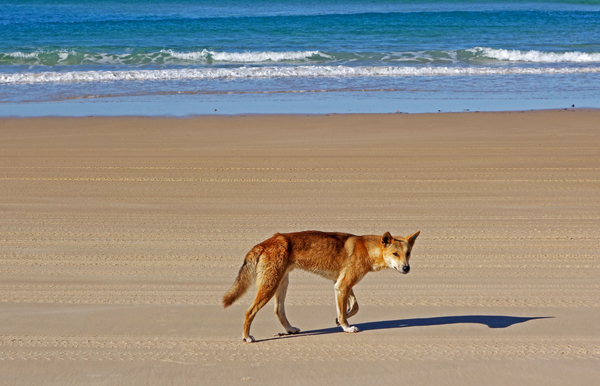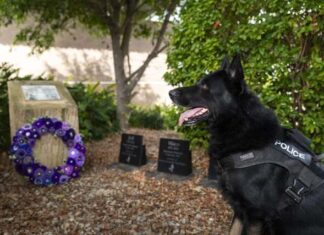SIX dingoes found dead on Fraser Island have all shown signs consistent with poisoning.
National Parks Minister Dr Steven Miles said the results of toxicology testing had not yet been received, but preliminary necropsy reports pointed to all of the animals suffering the same symptoms which led to their deaths.
“These symptoms were consistent with 1080 poisoning but we will not know for certain until the toxicology results are received,” Dr Miles said.
“The Queensland Parks and Wildlife Service will pursue all avenues in this investigation to establish just what has happened and who is behind these killings.
“Any individuals found to be involved can expect to be pursued to the maximum extent possible under the law.”
Dr Miles said the carcasses of six dingoes were recovered from the Orchid Beach area of Fraser Island after reports of deceased dingoes were first received on Friday (17 June).
One of the animals had been buried in a shallow grave.
A spokesperson for advocacy group Save Fraser Island Dingoes (SFID) said news of the poisoning was distressing, but not surprising.
“SFID has been receiving reports of pups being destroyed in dens and animals being poisoned in this area for years,” they said.
“It is hard to comprehend that anyone on the Island would resort to destroying the wildlife that most of us cherish, but the fact is there are still those who hold the view that the only good dingo is a dead dingo.
“It is time for a full and complete investigation into the poisoning of animals at Orchid Beach and for those who have information to have the courage and conscience to speak up.”
The maximum penalty for killing dingoes in a protected area is $353,400 or two years in jail but in this case other penalties could potentially apply.
The use of 1080 bait is registered in Queensland for the control of wild dogs, feral pigs, rabbits and foxes, but a Queensland Parks and Wildlife Service spokesperson said the bait was not used on Fraser Island.
Who killed dead dingoes?

Digital Edition
Subscribe
Get an all ACCESS PASS to the News and your Digital Edition with an online subscription
Tribute paid to police service animals
The Queensland Police Service (QPS) today recognises Purple Poppy Day, commemorating the incredible sacrifices, loyalty, and courage of war and service animals.
Held annually on...



![[READER COMPETITION] – Win a family ticket to Hudsons Circus](https://noosatoday.com.au/wp-content/uploads/2026/02/Hudsons-circus-1-100x70.png)



